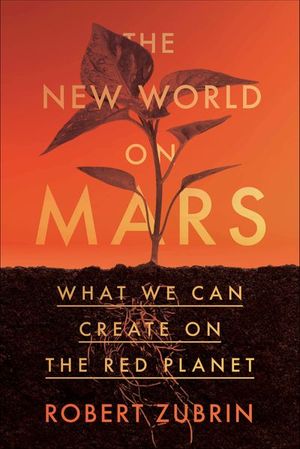The New World on Mars
“Zubrin's vibrant, colorful, and stimulating narrative of how to get to, modify, settle, and prosper on Mars makes me a believer.” —Homer Hickam, #1 New York Times–bestselling author
When Robert Zubrin published his classic book The Case for Mars a quarter century ago, setting foot on the Red Planet seemed a fantasy. Today, SpaceX, Blue Origin, and Virgin Galactic are building fleets of space vehicles to make interplanetary travel as affordable as Old-World passage to America. We will settle on Mars, and with our knowledge of the planet, analyzed in depth by Dr. Zubrin, we will utilize the resources and tackle the challenges that await us. What we will we build? Populous Martian city-states producing air, water, food, power, and more. Zubrin’s Martian economy will pay for necessary imports and generate income from varied enterprises, such as real estate sales—homes that are airtight and protect against cosmic space radiation, with fish-farm aquariums positioned overhead, letting in sunlight and blocking cosmic rays while providing fascinating views. Zubrin even predicts the Red Planet customs, social relations, and government—of the people, by the people, for the people, with inalienable individual rights—that will overcome traditional forms of oppression to draw Earth immigrants. After all, Mars needs talent.
With all of this in place, Zubrin’s Red Planet will become a pressure cooker for invention in bioengineering, synthetic biology, robotics, medicine, nuclear energy, and more, benefiting humans on Earth, Mars, and beyond. We can create this magnificent future, making life better, less fatalistic. The New World on Mars proves that there is no point killing each other over provinces and limited resources when, together, we can create planets.
BUY NOW FROM
COMMUNITY REVIEWS

